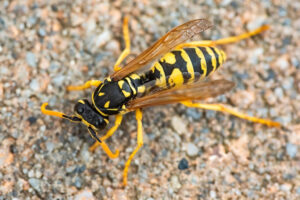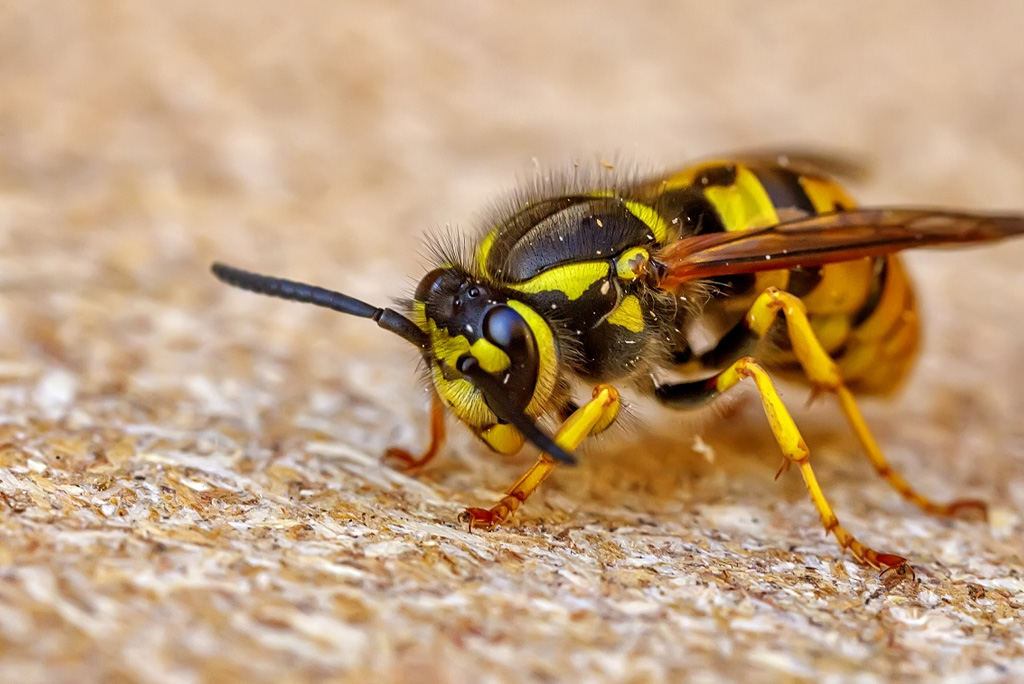If you are wondering what happens to wasps in the wintertime, most wasps die. However, there are exceptions. There are some female wasps that live through the winter. The reason for this is female wasps that are queens need to survive so they can begin a new wasp colony. Keep reading to find out more about the habits of wasps!
What Time Of Year Do Wasps Die?
Most male wasps die after summer temperatures decline into cooler, fall temperatures. This is partially because they cannot survive in cold temperatures. Cold weather is not the only reason wasps die at this time of year. Some of the wasps starve to death. Others die simply because they have fulfilled their purpose. As they only exist for the purpose of impregnating a queen wasp, they die when they are no longer needed. Wasps can also die if they are eaten by spiders or other predators.
What Cold Temperature Do Wasps Die?
When temperatures begin to cool down, many wasps die. Typically, cold weather for these insects means somewhere between 50 and 60°F.
Cold weather has a number of effects on wasps. When frost appears, wasps can freeze to death. However, many are already dead by then for other reasons. If the temperatures drop below 50 degrees, it affects a wasp’s ability to fly.
Cold temperatures lower a wasp’s metabolism. Its energy storage abilities also drop. As a result, wasps lose the ability to fly, work, and search for food because of these changes.

Where Do Wasps Hibernate In Winter?
Hibernation keeps some wasps alive during the wintertime. Although most wasps die during this period, they hibernate in areas where they can be safe and undisturbed. They choose locations where they can be protected from winter weather conditions and from predators. In general, queen wasps start to hibernate in September.
In some cases, wasps hibernate in outdoor areas. Some examples include underground burrows, old piles of leaves, log piles, underneath tree bark, and in holes in trees.
Hibernation is not limited to outdoor areas. If you have a barn, garage, or shed on your property, it can be an excellent place for wasps to stay during the winter. They can hide in nearly any crack or crevice, hole, or underneath eaves and gutters on a building.
Unfortunately, wasps can choose your home for their winter hibernation, too. A wasp can spend the winter in the eaves of your roof, in door frames and window frames, in rafters, and in porch ceilings.
Another important point to keep in mind is if a wasp decides your home is the ideal place to hibernate, this may involve the inside of your house. As there is more protection and warmth inside a house, do not be surprised if a wasp decides to stay in your attic, basement, or inside of the wall. They can enter your home through gaps or cracks, or any other entry point they manage to find.
Is It Safe To Remove A Wasp Nest In Winter?
Wasp nests are usually empty during the wintertime. While you may assume this means you can safely remove it, this is not always the case.
One reason it is unwise to remove a nest is there may still be wasps that are alive in the nest. The female workers and male drones may not all be dead, and the queen wasp could remain in the nest until they all die.
A second reason is while queen wasps are dormant during the winter, if the temperatures get warmer they can become active again.
Because of these factors, you cannot count on a specific month or season to mean there are no living wasps in a nest. In addition, unusually warm temperatures also increase the risk of wasps leaving the nest and moving into different parts of your house. If this occurs, the queen wasp can build a nest somewhere else around your home.
Whether you see a single wasp or a wasps’ nest inside your house or anywhere on your property, the smartest step you can take is to contact a pest control professional. This is the best way to ensure your safety, and to ensure every wasp is removed. As such, you will not need to worry about being stung while removing a nest, or killing a wasp only to find there are more in your house.
Reaching out to the wasp removal experts at Peachtree Pest Control in Atlanta is the best way to deal with these annoying pests, regardless of the season. Let us handle your stinging insect problem, for your own safety and peace of mind!
